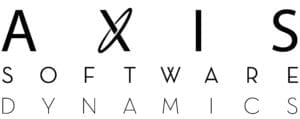Function-as-a-Service (FaaS) is a cloud computing model that allows developers to execute code snippets in the cloud, without having to worry about the underlying infrastructure. This approach to cloud computing has become increasingly popular in recent years, thanks to its flexibility and scalability, as well as its ability to reduce costs for businesses and developers alike.
Serverless Computing
The FaaS model is based on the concept of serverless computing. In serverless computing, the cloud provider manages the infrastructure and provides a platform for executing code snippets. The cloud provider charges for the actual execution of the code, rather than for the underlying infrastructure, which is why FaaS is often considered a more cost-effective option compared to traditional cloud computing models.
With FaaS, developers write code snippets that are triggered by specific events, such as a new data entry in a database, a new file uploaded to a cloud storage service, or a new API request. When an event is triggered, the code is executed in the cloud and the output is returned to the requester. The cloud provider automatically handles the scaling and management of the underlying infrastructure, so developers can focus on writing code and delivering value to their customers, rather than worrying about the underlying infrastructure.
Scalability
One of the key benefits of FaaS is its scalability. Since the cloud provider handles the infrastructure, the platform can automatically scale up or down as needed to handle changing workloads. This means that businesses and developers can respond to changes in demand quickly and efficiently, without having to worry about overprovisioning or underprovisioning resources.
Flexibility
Another benefit of FaaS is its flexibility. Since developers can write code snippets for specific events, they have a lot of control over the functionality of their applications. This makes it easier for them to create and deploy new features, as well as make changes to existing functionality, without having to worry about the underlying infrastructure.
Cost Effective
Finally, FaaS can be a more cost-effective option compared to traditional cloud computing models. Since businesses and developers are only charged for the actual execution of the code, they can save money by avoiding the costs associated with overprovisioning resources or paying for idle infrastructure. This makes it an attractive option for startups and businesses with limited budgets.
In conclusion, FaaS is a cloud computing model that is growing in popularity due to its flexibility, scalability, and cost-effectiveness. By allowing developers to execute code snippets in the cloud without having to worry about the underlying infrastructure, FaaS is making it easier for businesses and developers to deliver value to their customers and respond to changes in demand quickly and efficiently. Whether you are a business owner, developer, or just someone interested in cloud computing, FaaS is definitely worth exploring.
Contact us today for your custom software development needs!






